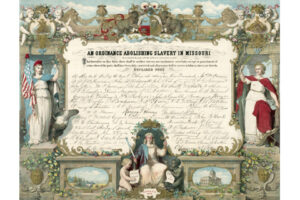
Until April 2, 2021, the Library has trial access to parts 2-4 of Slavery and Anti-Slavery. All modules can be accessed from the A-Z database link.
Part I: Debates over Slavery and Abolition sheds light on the abolitionist movement, the conflicts within it, the anti- and pro-slavery arguments of the period, and the debates on the subject of colonization. It explores all facets of the controversial topic, with a focus on economic, gender, legal, religious, and government issues.
Part II: Slave Trade in the Atlantic World charts the inception of slavery in Africa and its rise as perpetuated on both sides of the Atlantic Ocean, placing particular emphasis on the Caribbean, Latin America, and United States. More international in scope than Part I, this collection was developed by an international editorial board with scholars specializing in North American, European, African, and Latin American/Caribbean aspects of the slave trade.
Part III: The Institution of Slavery expands the depth of coverage of the topic. Part III explores, in vivid detail, the inner workings of slavery from 1492 to 1888. Through legal documents, plantation records, first-person accounts, newspapers, government records, and other primary sources, this collection reveals how enslaved people struggled against the institution. These rare works explore slavery as a legal and labor system, the relationship between slavery and religion, freed slaves, the Shong Masacre, the Dememara insurrection, and many other aspects and events.
Part IV: Age of Emancipation includes numerous rare documents related to emancipation in the United States, as well as Latin America and the Caribbean. This collection supports the study of many areas, including activities of the federal government in dealing with former slaves and the Freedmen’s Bureau, views of political parties and postwar problems with the South, documents of the British and French government on the slave trade, reports from the West Indies and Africa, and other topics.